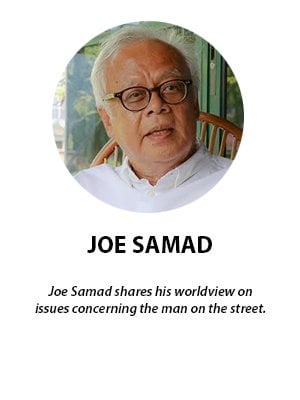
Sabah chief minister Hajiji Noor has announced that the state will celebrate its inaugural Sabah Day in Tambunan to honour and commemorate the day which marked the end of British colonial rule in 1963, signifying our journey of coming together to establish self-rule.
It will be held annually rotating among the various districts. Sarawak has already celebrated their independence day for many years now.
The Borneo states are getting closer in asserting their “independence” from Malaya.
Up north in the Peninsula, the proposal for Perlis, Kedah, Kelantan and Terengganu to use different National Day logos and themes for state-level celebrations instead of those announced at the federal level has ruffled many feathers.
As I espoused in my previous article, Malaysia is becoming more sectarian in outlook.
This new development is expected when the central government is weakened by political strife and years of neglect in developing the poorer states, with education policies focusing on religion rather than the real world, amid rampant corruption and cronyism.
It’s a bitter pill to swallow but it’s a price the central government is paying now for race and religion baiting instead of focusing on the economy and the wellbeing of the people. You reap what you sow.
Ignoring history
Our federal leaders are still ignorant that Malaysia is 60 years old this year and not 66. They still continue to ignore history and can’t do simple arithmetic. This is why the country is in such a mess.
After 60 years as partners of Malaysia, Sabah is still the poorest state in Malaysia despite being rich in oil resources.
On average Sabah has been getting RM1.1 billion cash payments since 2008, while the federal government gets RM50 billion dividends from Petronas in 2022 alone, not including other oil and corporate taxes.
According to minister in the Prime Minister’s Department Azalina Othman Said, based on Petronas records as at Jan 1, 2022, Sarawak’s 2P reserves represent 60.87% of Malaysia’s total reserves, whereas Sabah’s portion makes up 18.84%.
Reserves in Peninsular waters make up the balance of 1.4 billion boe (20.29%), using back-of-the-envelope calculations. Generally, 2P reserves have a more than 50% chance of being technically and economically possible to be produced. The projected reserves are expected to last 15 years.
Propping up the centre
Since approximately, 80% of the 2p reserves are in Sabah and Sarawak, this means Sabah and Sarawak will continue to prop up the central government and fuel Peninsular Malaysia development for years to come.
Sarawak premier Abang Johari Openg said oil and gas extracted in Sarawak territory must be split equally between Petros (Petroleum Sarawak Berhad) and Petronas.
This is in accordance with the provisions of the state Oil Mining Ordinance 1958 and Petroleum Development Act 1974. He said, “Our argument is that the 1974 act cannot be applied alone and it must work together with our 1958 ordinance.”
These claims are not a new development; they have been made many times but have been ignored by the federal government.
In 2019 the Sarawak government took Petronas to court for the failure to pay the sales petroleum tax and the matter was settled out of court resulting in Petronas paying billions to Sarawak. Sabah followed suit and imposed the same sales tax.
Both states are now enjoying additional revenue from oil companies operations in their respective boundaries.
In 2018, the then Prime Minister Dr Mahathir Mohamad promised that the oil producing states would receive 20% of oil royalties as stated in Pakatan Harapan’s election manifesto. This promise was not delivered. Since the PH government is in power again, it’s time to fulfill its promise.
Duped into joining Malaysia
As we enter the months of double celebrations, with Merdeka day overshadowing Malaysia Day, the resentment and injustice felt is deepening in East Malaysia.
People now have access to books, parliamentary Hansards, and historical documents which show that the Borneo territories were not part of the earlier negotiations to form Malaysia.
The general feeling is that both states were duped into joining Malaysia which was more of a fait accompli.
The Sabah Law Association has a court date pending in September over the revenue-sharing issue stated in the constitution. This case is eagerly awaited by Sabahans who are watching the developments closely.
Whatever the outcome, the resentment of inequality will continue to resonate among the Borneo population who demand equality in all aspects of development from basic infrastructure, to autonomy, education and health.
Rough ride for His Majesty
It’s good news to hear that our Yang di-Pertuan Agong is set to experience the current state of Sabah’s roadways first hand during his Pan Borneo Highway tour in September.
Works minister Alexander Nanta Linggi said the king has been well-informed that the Sabah portion of the highway is incomplete. He added the king was also informed of the treacherous “jalan bulan” sections (like the moon surface) due to their pothole-riddled conditions.
We have to salute the king as no prime minister has ever driven the length and breadth of Malaysian Borneo and experienced the everyday hardship of citizens who ply the road to earn a living or to reach hospitals or clinics.
We just hope that the potholes will not be covered temporarily by red carpet to smoothen the king’s journey. - FMT
The views expressed are those of the writer and do not necessarily reflect those of MMKtT.


No comments:
Post a Comment
Note: Only a member of this blog may post a comment.